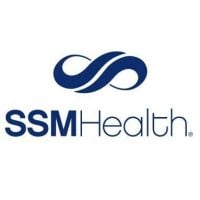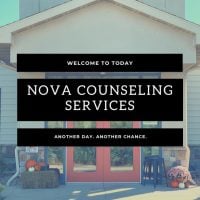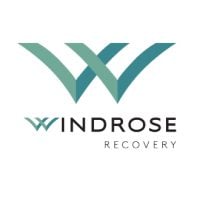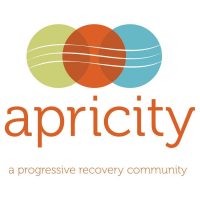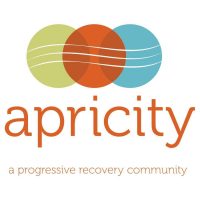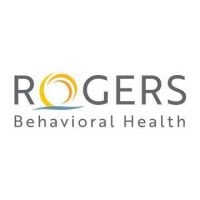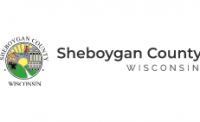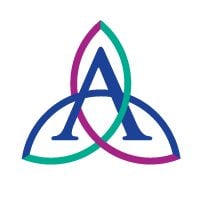Alcohol and Drug Abuse Resource
Drug Rehab Center in Fond Du Lac, Wisconsin
Alcohol and Drug Abuse Resource, located in Fond Du Lac, Wisconsin, offers addiction treatment and support to individuals suffering from alcoholism, opioid addiction, and substance abuse, providing intensive or outpatient levels of care and accepting private health insurance to make their services accessible and affordable.
About This Wisconsin Facility
Alcohol and Drug Abuse Resource is an addiction treatment facility located in Fond Du Lac, Wisconsin. This facility provides people suffering from alcoholism, opioid addiction, and substance abuse the necessary support and treatment they need to recover and become sober. ADAR offers each of its patients aftercare support, drug rehab, and intensive or outpatient levels of care depending on the severity of their addiction. ADAR accepts private health insurance and strives to be as accessible and affordable as possible.
From their comprehensive drug rehab program to their Intensive Outpatient program, Alcohol and Drug Abuse Resource provides a variety of services to help individuals struggling with addiction. Their individualized treatment plans are customized to meet the specific needs of each patient, so that they can make an effective and lasting recovery. The facility is accredited by the Joint Commission, and holds license numbers 13229 from the Wisconsin Department of Safety and Professional Services. This demonstrates the high quality of care that ADAR provides.
Genders
Ages
Modality
Additional
Conditions and Issues Treated
Substance Abuse Treatment is important when getting sober, as it helps addicts learn the skills they need to live a clean life. There are many different kinds of recovery treatment, including medication-assisted therapy, behavioral therapeutic approaches and self-help groups, as well as counseling.
Opioid abuse has become a national epidemic in the last decade. The US has one of the world’s highest rates of opioid use and abuse, as well as opioid-related deaths. Opioids are classified as Schedule II-IV controlled substances in the US due to their high potential for abuse.
Oxycodone, hydrocodone, methadone, and fentanyl are the most common Opioids and are commonly prescribed to treat pain. Tolerance to opioids develops over time, making life difficult, if not impossible, without them. Opioid users often obtain the drugs illegally. They can be drug dealers, friends, or family members who do not have valid prescriptions.
The desire for a more intense high than prescription opioids can quickly lead to heroin use. Heroin users are more prone to illness and death due to the high risk of overdose.
Many opioid addicts who seek treatment believe that the only way to overcome their addiction is through medical detox and long-term drug addiction rehab. To help patients wean off their addiction and reduce the risk of overdose, medication-assisted therapy (MAT) involves prescribing a replacement opioid. Doctors use MAT in conjunction with other anti-craving medications to help patients maintain recovery. Due to the high risk of relapse, MAT is often combined with individual and group counseling and social support programs.
Levels of Care Offered at Alcohol and Drug Abuse Resource
This center offers a variety of custom treatment tailored to individual recovery. Currently available are Aftercare Support, Drug Rehab, Intensive Outpatient, Outpatient, with additional therapies available as listed below.
Intensive outpatient treatment is a form of addiction care that allows patients to continue living at home while undergoing treatment. This type of care is appropriate for patients who have been treated in residential treatment programs. Intensive outpatient programs include regular visits to the facility providing therapy, and patients gradually return to their routine life. IOP benefits most when patients have a supportive family member or friend to help them recover.
The first step to getting into an intensive outpatient program is to attend a detoxification facility. Detoxification facilities are designed to remove substances from the body safely. The patient will attend sessions designed to help them understand their addiction and its impact on their lives. While in an intensive outpatient program, therapy sessions are scheduled three to five times per week, with the patient attending no more than two sessions in one day.
An outpatient treatment program is set up to help with alcohol or drug addiction or a co-occurring disorder. The patient must attend the facility for their therapy and other programs but can return home each night.
The frequency of mandatory attendance decreases after much of Alcohol and Drug Abuse Resource‘s program is complete.
Outpatient treatment is a recovery approach that allows recovering addicts to live at home while getting rehab for addiction
An outpatient can include day treatments which include attending group sessions one hour per week. A person living in an outpatient environment may be allowed the opportunity to work full time if they choose to and continue studies without interruption from drugs/alcohol.
Outpatient treatment is an option for people who want to maintain their careers and families. Outpatients live at home but attend treatment such as individual counseling, group counseling, or twelve-step meetings during the day.
Aftercare support is vital to the success of someone in drug or alcohol treatment. It involves assisting with entering a sober living home, getting career counseling or educational assistance and even getting the individual lined up with programs like AA and NA. This support helps recovering addicts readjust to normal day-to-day activities and maintain sobriety.
When a person is in drug or alcohol treatment, they have to increase their focus on themselves. They need to learn how to recognize the triggers that cause them to relapse and learn the habits that would benefit them if they were to be sober. This is all part of the growth in recovery, and aftercare is essential to that process.
Therapies & Programs
At Alcohol and Drug Abuse Resource , to learn from past mistakes and improve one’s situation, the recovering person meets individually with a therapist. The counselor or therapist will address addiction causes, triggers, mental issues, dual diagnosis, and aftercare plans during this time. This is a very intense and challenging process. Some clients find it easier to open up to someone other than family or friends who understand their struggles with addiction.
Trauma therapy allows people to face and learn from past traumas.
Many people suffer childhood traumas that lead to adult addiction. During treatment at Alcohol and Drug Abuse Resource [/type], you can move forward in your recovery and reclaim your sober future! Trauma is a common cause of psychological disorders like Addiction Disorder. It’s common in Addictive Disorders patients because traumatized people have strong emotions or thoughts that lead to addictive behaviors.
Cognitive Behavioral Therapy (CBT) is based on the idea that how we feel, think and act all interact together. It helps people explore their thoughts for problems (or false beliefs) that influence their mood and actions. CBT is very goal-oriented, which means that the therapist and patient work together on a specific problem. In addition to helping a client focus on thoughts that can be changed, CBT also allows them to take an active role in their treatment. Our thoughts determine our feelings and behaviors; our feelings affect our thoughts, and our behaviors change our thoughts and feelings.
Additional Details
Specifics, location, and helpful extra information.
Fond Du Lac, Wisconsin 54935 Phone Number(920) 924-5222 Meta DetailsUpdated November 25, 2023
Staff Verified
Patient Reviews
There are no reviews yet. Be the first one to write one.
Fond Du Lac, Wisconsin Addiction Information
Wisconsin has some of the highest rates in the United States for both adolescent and adult substance abuse. Since 2009, the state has been experiencing the same escalating rates of drug abuse and addiction as the rest of the country. The major concerns are the misuse of prescription painkillers and the escalating number of deaths due to alcohol-related liver disease.
The drug addiction problem in Fond Du Lac, WI, is unfortunately quite bad. There are around 9 deaths per 100,000 people in the city due to drug overdoses. Additionally, there are around 1,600 people admitted to rehab for drug abuse every year in Fond Du Lac. In Fond Du Lac, Wisconsin, several drug rehab facilities can help people struggling with addiction get sober.
Treatment in Nearby Cities
- Kaukauna, WI (35.9 mi.)
- Richland Center, WI (101.9 mi.)
- Kewaskum, WI (20.7 mi.)
- Cudahy, WI (63.6 mi.)
- Prairie Du Chien, WI (144.3 mi.)
Centers near Alcohol and Drug Abuse Resource
The facility name, logo and brand are the property and registered trademarks of Alcohol and Drug Abuse Resource, and are being used for identification and informational purposes only. Use of these names, logos and brands shall not imply endorsement. RehabNow.org is not affiliated with or sponsored by Alcohol and Drug Abuse Resource.

